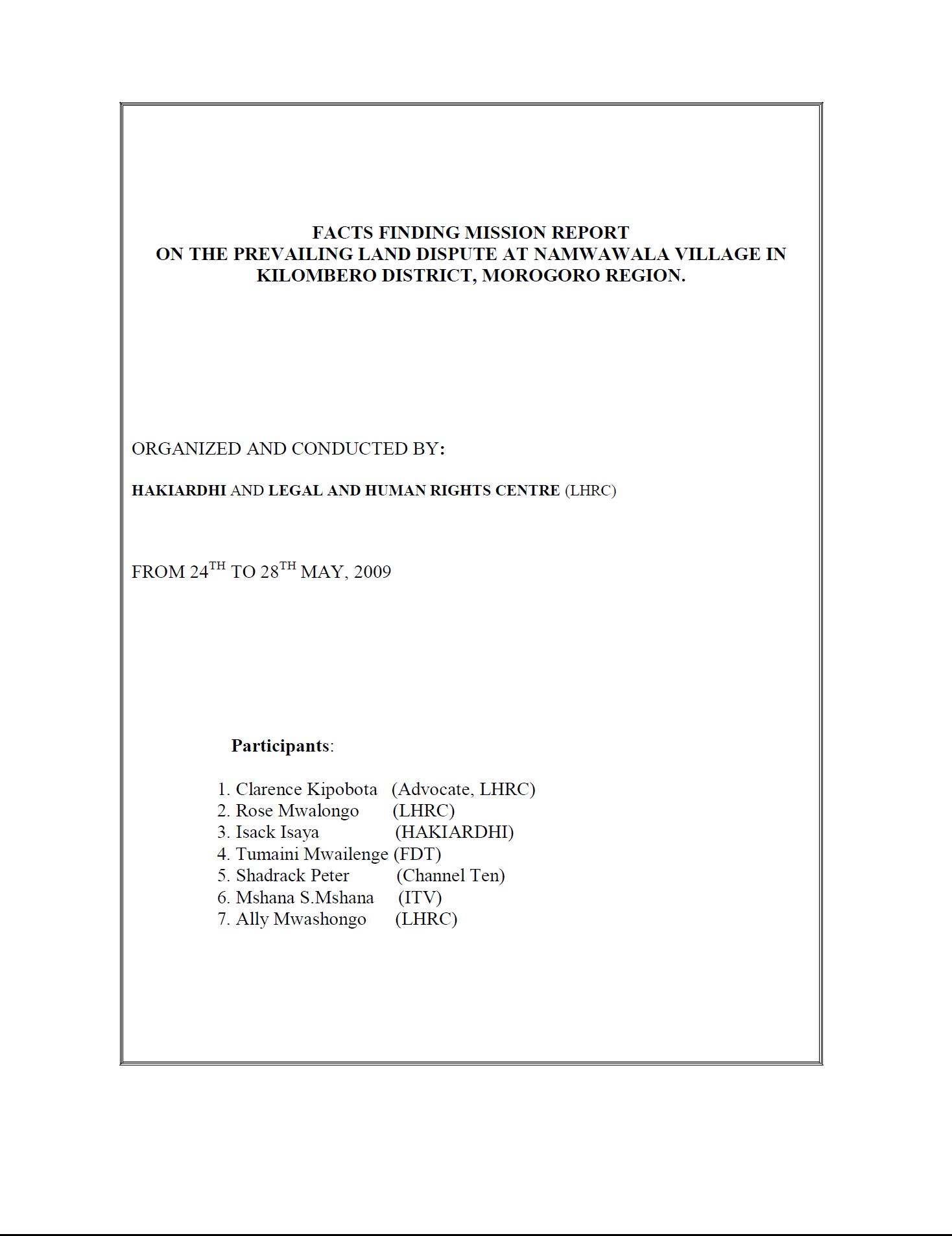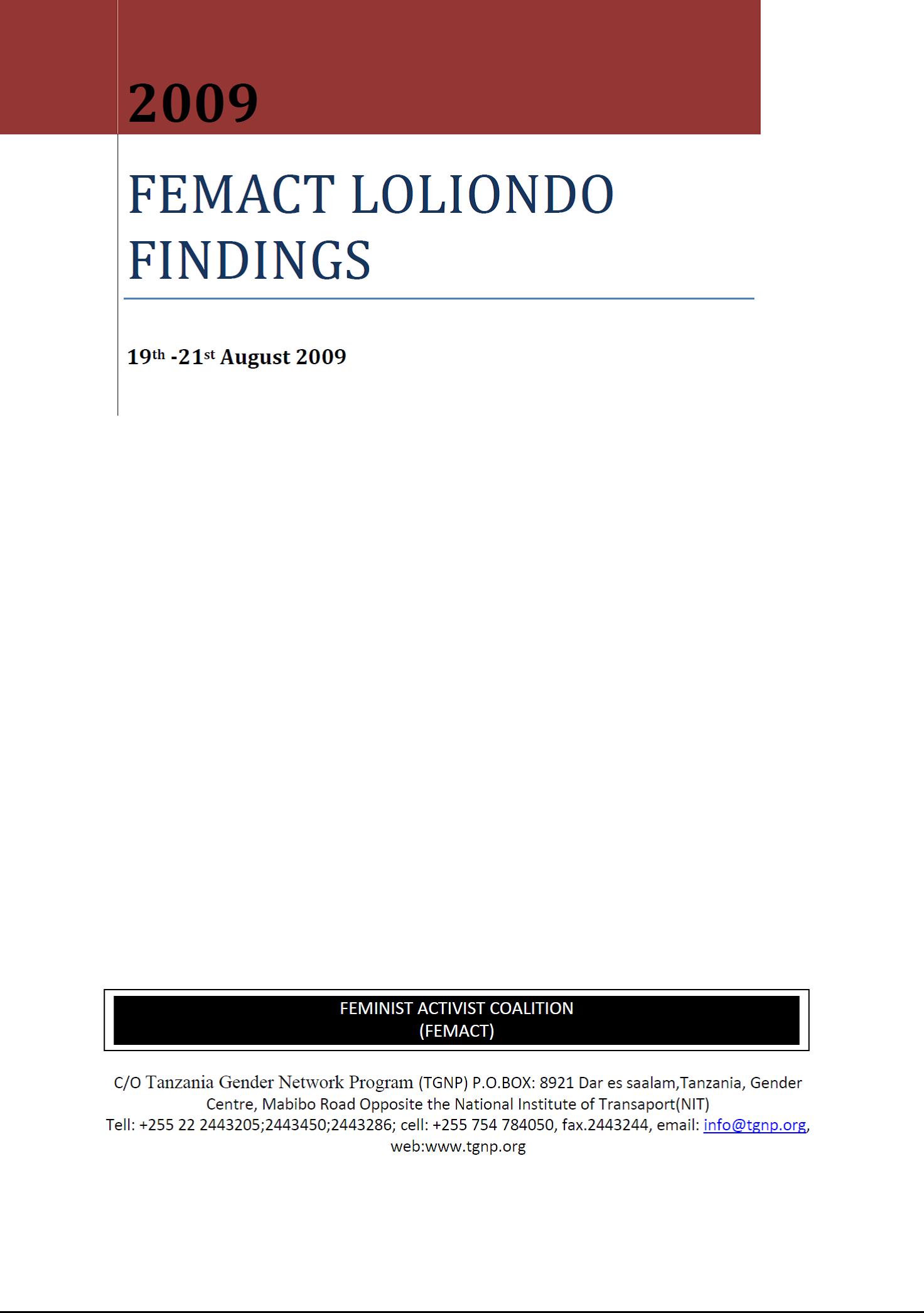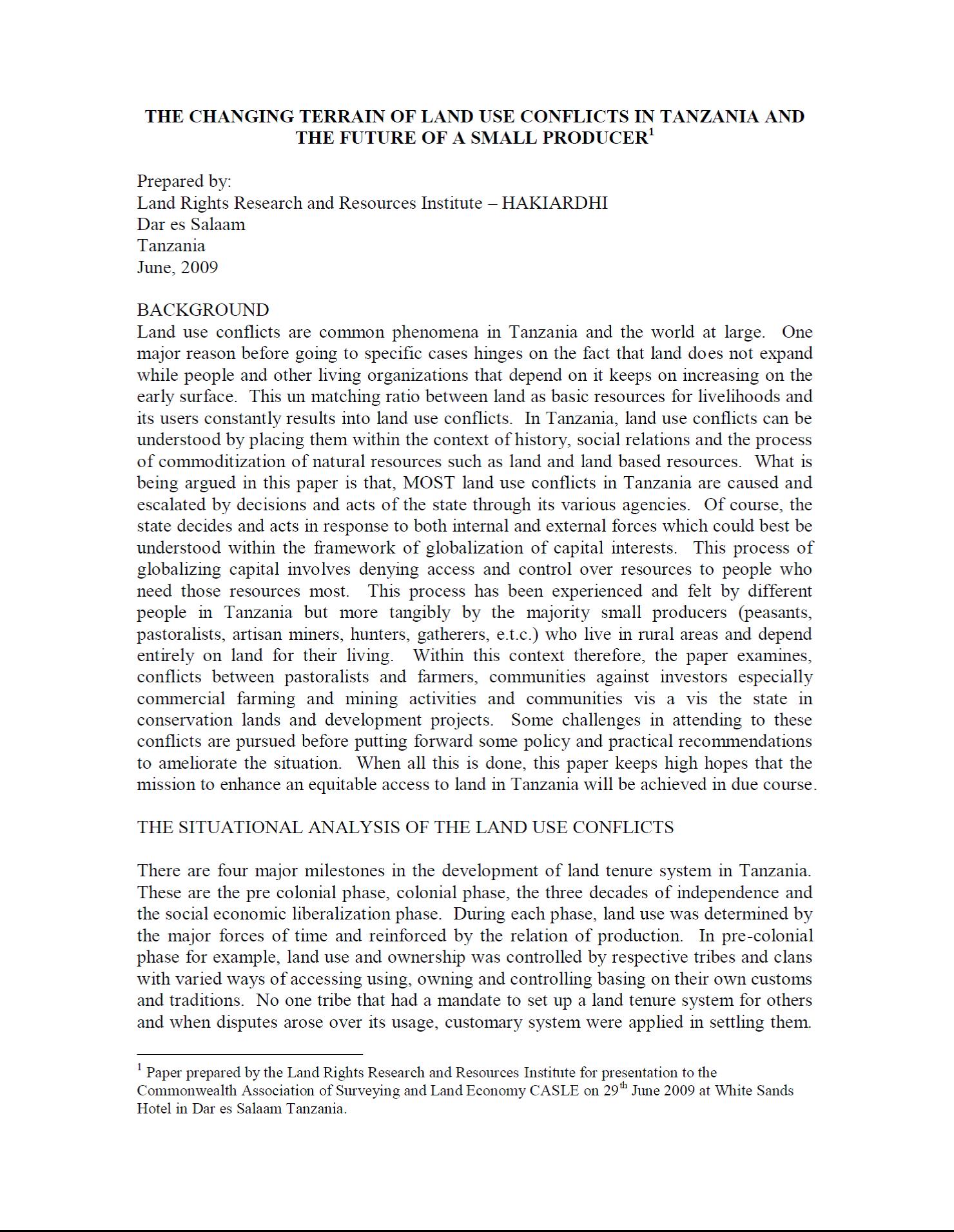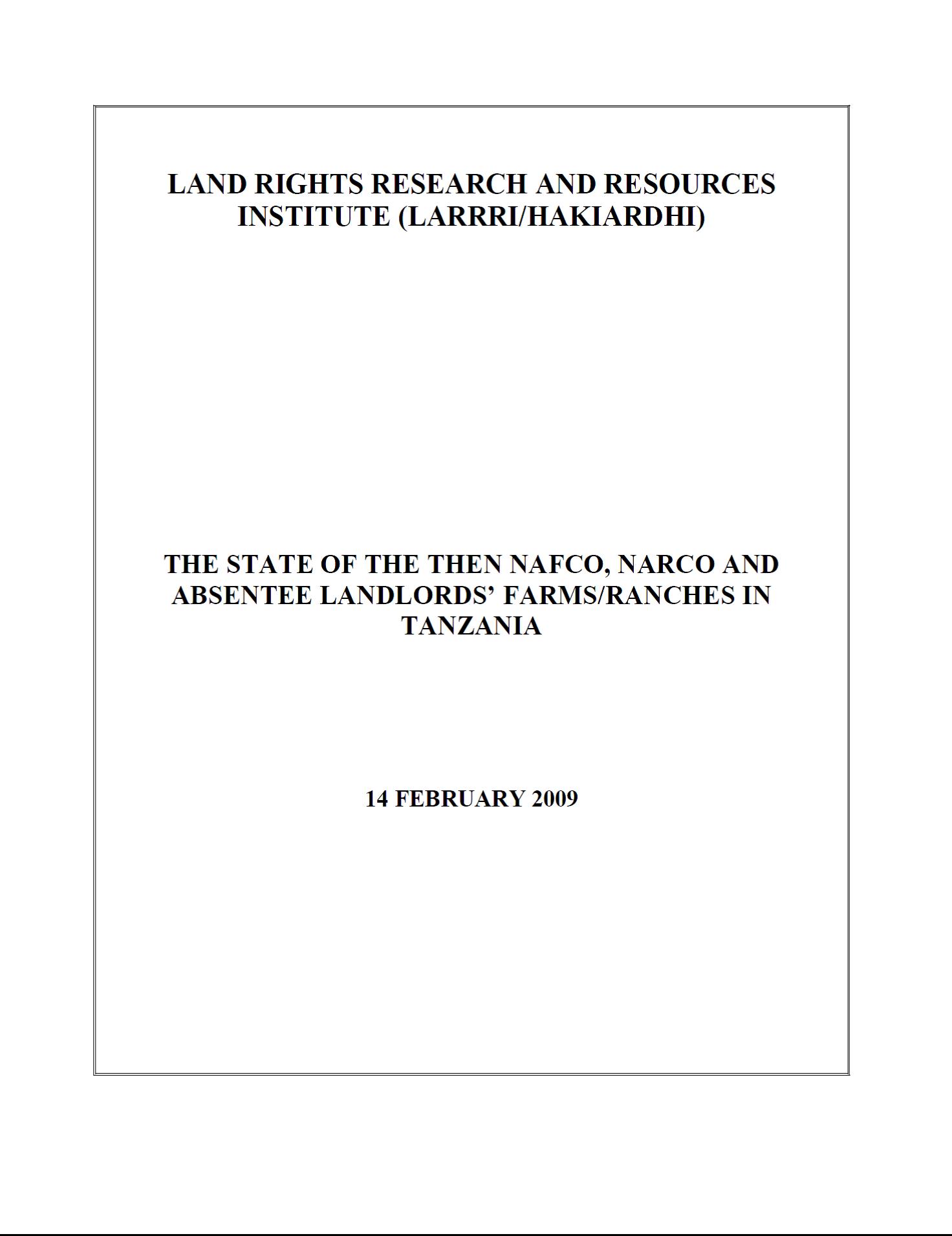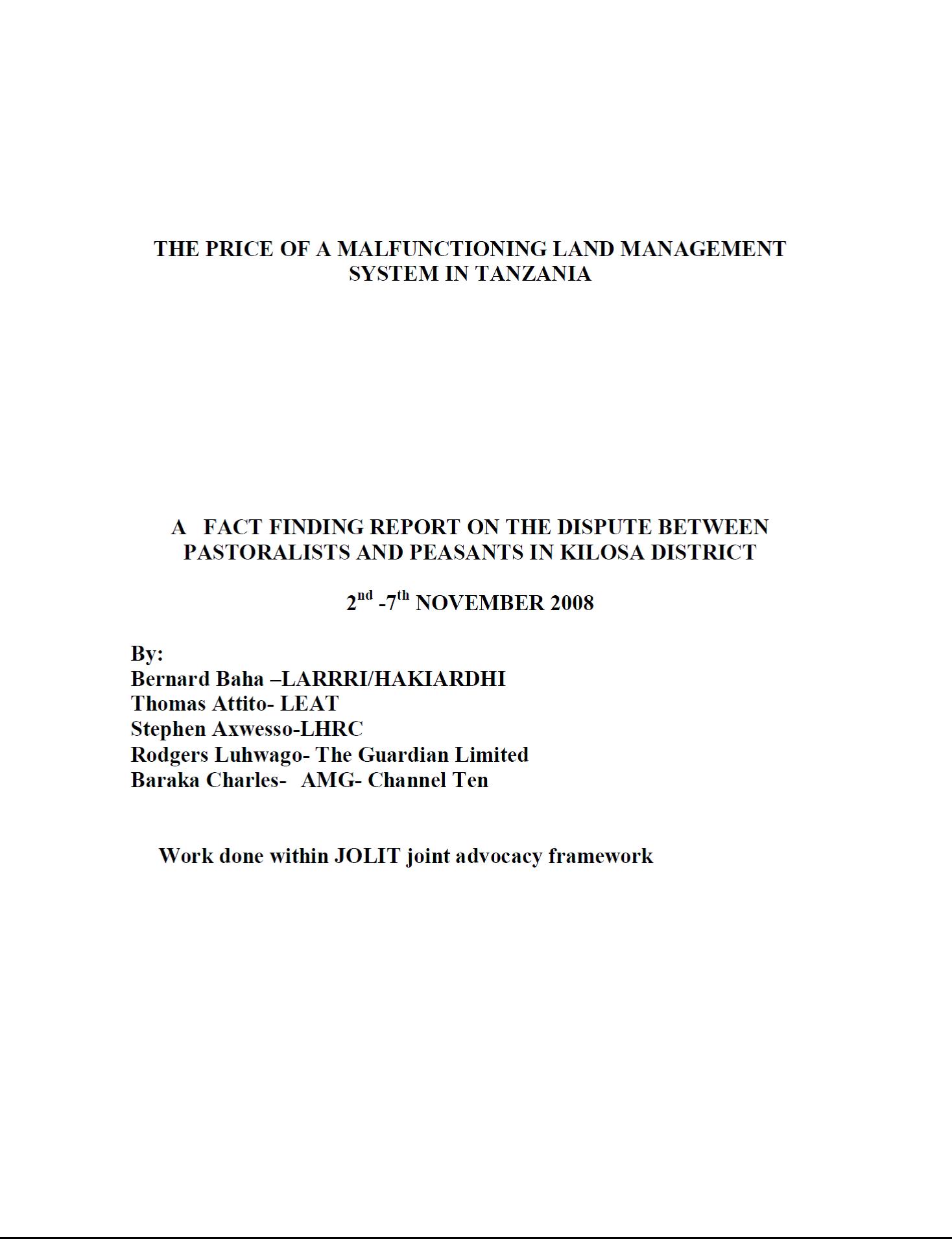Focal point
Location
The Land Rights Research & Resources Institute was founded in 1994 and registered as a non-governmental not-for profit company limited by guarantee under the Companies Ordinance, Chapter 212 of the laws of Tanzania.
The Institute was established out of the need to generate and sustain a public debate and participation, particularly where it matters in villages on issues of land tenure.
It is the institute’s belief that such debate will be better informed if. There is a recognition of indigenous systems of land tenure knowledge and experiences, a will and capacity to research into these and thus generate more systematic knowledge of the same; and an institutional arrangement independent of the state system to generalize local knowledge and experiences horizontally between and among village committees thereby producing a corpus of a truly national system of knowledge on land relations.
VISION
Land Rights Research and Resources Institute envisages a socially just and equitable land tenure system in which all groups in the society and especially the rural based small producers are guaranteed security of tenure, access and ownership to land and other means of their livelihood.
MISSION
HAKIARDHI's mission is to promote and ensure realization of the rights to land of about eighty percents of the rural based communities who are mainly small land holders and producers.
Members:
Resources
Displaying 66 - 70 of 85Fact Finding Mission Report on the Prevailing Land Dispute at Namwawala Village in Kilombero District, Morogoro Region
This is the report relating to the facts finding mission conducted by HAKIARDHI and LHRC as an intervention in response to an outcry from the villagers at Namwawala village in Kilombero district, Morogoro region, owing to the alleged plan of the government to take possession of the village land for investment purposes.
FEMACT Loliondo Findings
Over the Last three months, acts of unconceivable evil were perpetrated through an eviction operation against indigenous pastoralists in Loliondo. Loliondo is one of the three Divisions of the Ngorongoro District situated in the Arusha Region in Northern Tanzania. The Ngorongoro District Covers an area of about 14037 square Kilometres. Stretching across some 8,300 sq km, is the Ngorongoro Conservation Area, established in 1959 and governed by the Ngorongoro Conservation Area Authority, and the rest is the Loliondo Game Control Area consisting of the Sale and Loliondo Divisions.
The Changing Terrain of Land Use Conflicts in Tanzania and the Future of a Small Producer
Land use conflicts are common phenomena in Tanzania and the world at large. One major reason before going to specific cases hinges on the fact that land does not expand while people and other living organizations that depend on it keeps on increasing on the early surface. This un matching ratio between land as basic resources for livelihoods and its users constantly results into land use conflicts.
The State of the then NAFCO, NARCO and Absentee Landlords' Farms/Ranches in Tanzania
The study sought to determine the state of farms that belonged to the then National Agricultural Corporation (NAFCO), ranches that belong to the National Ranching Company (NAFCO) and land belonging to absentee landlords. Since any state is dynamic, this research report, then, is a socio-historical account of what has been happening within/out more than 543,604 hectares of ranch/farmland in the wake of the fall of nationalization and rise of privatization.
The Price of a Malfunctioning Land Management System in Tanzania
It is almost a decade now since the fights between Pastoralists and peasants broke out in Kilosa district Morogoro region in December 2000 claiming tens of people’s lives and causing irreparable losses and damages their properties. While the wounds of that dark record are still fresh in some of the minds of the communities in Kilosa, another very serious fight between the same or rather similar groups occurred this October prompting the media and human rights activists to find some ways to intervene in a bid to find lasting solutions for the problems.


